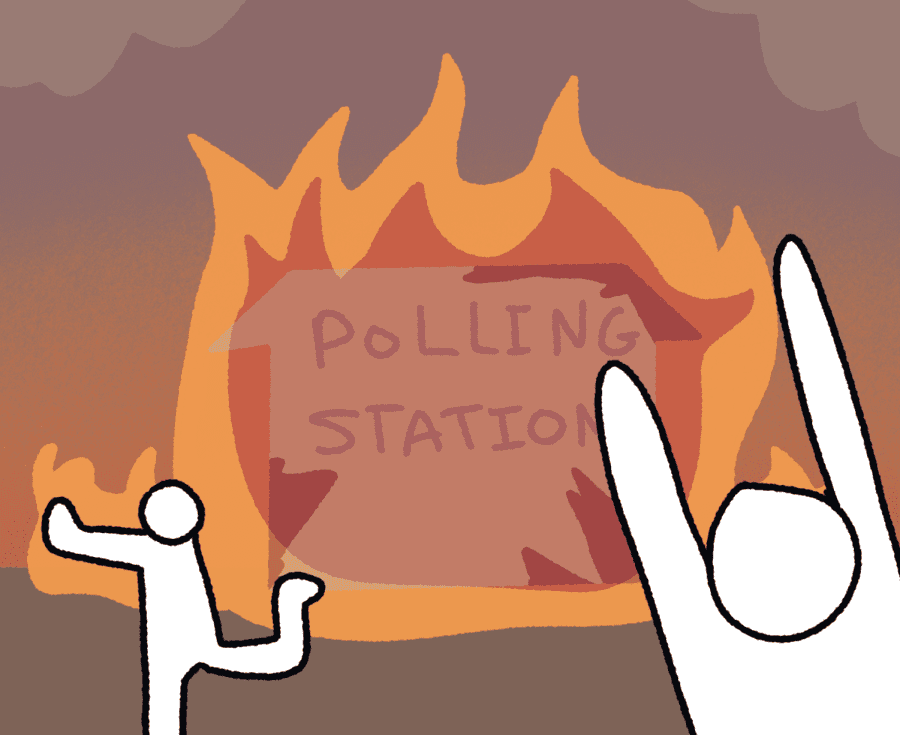Opinion | Democracy has hope despite political climate
November 3, 2022
If you think America’s current political landscape is bad, look back at what it was like in 1860.
It’s a tale as old as time — or at least as old as the Confederacy. Upon the presidential election of Abraham Lincoln, a firm anti-slavery nominee, South Carolina decided to secede from the Union. This set off the Civil War, the deadliest war fought on American soil and an entire chapter in many middle school history textbooks.
Those poor middle school students, and those poor voters in 1860.
Imagine having the responsibility to keep the Union with only a pen and a ballot. That is the power Americans have always held and will once again wield during the midterm elections on Nov. 8. Fortunately, unless any of the Carolinas have been having rebellious ideas lately, voters in 2022 will not have the fate of the Union in their hands.
More recent elections have not set off any wars, but that doesn’t make them any less important.
Get The Daily Illini in your inbox!
Elections change with the times. With the invention of the TV, Democratic nominee John F. Kennedy gained a massive advantage a century after Lincoln was elected in the first-ever televised debate opposite Richard Nixon in 1960. Voters were swayed by Kennedy’s charm and youth, and if they had not been, one may wonder how then-serving President Nixon would have handled the Cuban Missile Crisis.
History now sees Kennedy as less than perfect, but voters made him president, thus changing the course of American history — for better or worse.
These days, every election seems to carry a monumental weight. The average informed voter on either side of the political spectrum may feel like an election loss is equal to the destruction of American morality and the potential downfall of democracy. Or even worse, to some choice individuals, it could spell the start of another civil war.
However, democracy only falls if we let it.
People in 1860 and 1960 rightly performed their responsibilities as citizens, judging the candidates’ fitness for office as best as they could. In all fairness, citizens in 1960 had it better than in 1860, considering neither Kennedy nor Nixon were pro-slavery.
But no one could have foreseen a completely abolitionist ballot in 1860.
Hindsight is a gift and a curse. We wonder how our predecessors acted so ignorant while simultaneously making the same mistakes.
So, turn out to the polls on Nov. 8. You may not be voting to prevent a civil war, but you will be voting for individuals to represent you in matters like abortion rights, immigration, college debt, gun rights and health care.
These topics are what are glaring at us collectively, and to whittle the importance of elections down to a generalized perception of the evil “other side” is a disservice to democracy and the true issues at hand.
No one knows the consequences of the little bubble you fill in when choosing your representatives. However, that dread should not overwhelm American voters, especially considering the U.S. has been trailing lately in voter participation behind other developed nations.
This is not the time to be wary of exercising your rights as a citizen. We have a chance to maintain a relatively young democracy that still has a good amount of gas in the tank.
Fire won’t rain down from the heavens if people elect the wrong candidate. All we can do is try our best, and presuming the Carolinas don’t have rebellious thoughts anytime soon, we can worry less about a potential civil war and focus on the larger issues at hand.
Aaron is a freshman in DGS.







